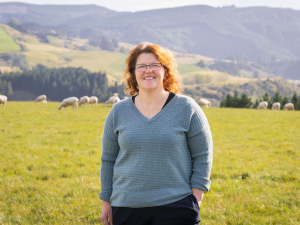New results from long-running research suggest that farmed animals bred for less impact on the climate are as healthy and produce meat quality just as good, if not better.
The results come from a study that has been running for over a decade. The study has been performed by AgResearch scientists, supported by the industry through the Pastoral Greenhouse Gas Research Consortium (PGgRc) and Beef + Lamb New Zealand Genetics, and the New Zealand Agricultural Greenhouse Gas Research Centre (NZAGRC).
The research, according to AgResearch, proves that some sheep naturally emit less methane as a product of their digestion, and that this trait can be bred for and passed down through generations.
After three generations of breeding, the lowest emitting sheep in a research flock produced close to 13% less methane than the highest emitters, per kilogram of feed eaten.
However, questions have remained about whether this low methane trait means sacrifices for the health and quality of the animals, including quality of the meat derived for export around the world.
AgResearch senior scientist Suzanne Rowe says research now published in a series of papers provides valuable insight into the implications of breeding for lower methane.
“Once we knew we could breed for less methane, we set about determining what the impact on the animal might be from birth through to parenthood,” Rowe says.
She says the work was carried out in flocks across the country using different measures over several years to demonstrate that low methane emissions can be included into breeding goals without sacrificing other key health and performance traits.
“What we have found is that breeding for lower methane, and the physiological changes we see in these lower emitting animals, do not negatively affect meat quality or those things meat producers are looking for in the animal carcass,” Rowe says.
“The story has some complex biology behind it as we saw that low-emitting animals have different eating behaviours, tending to be grazers rather than gorgers – eating more feed than their high-emitting counterparts, even though the high emitters had bigger stomachs.”
She says this ‘little and often’ approach seems to favour laying down muscle instead of fat under the skin, while keeping the healthy fats that provide flavour, so mat quality is retained along with the reduced emissions.
“We think the low-emitting animals may in fact have even greater economic value through decrease fat and increased meat yields.”
Rowe says this is critical because farmers need to know that if they are committing to breeding for lower methane, they are not going backwards in their productivity and earnings.
“This knowledge provides greater incentive to make changes on farms that contribute to New Zealand’s methane reduction goals, and to climate change globally.”
Research relating to the health of the sheep also suggests that breeding for low methane is unlikely to affect issues such as internal parasites, the fertility of adult ewes and the survival of lamb litters.
When it comes to wool, low methane breeding was favourable to fleece weight, while it was also favourable to the weight achieved by the animal before slaughter and its body condition.
The science is now enabling sheep breeders in New Zealand to breed for this low methane trait.
Similar research is underway in New Zealand to achieve something similar in cattle, building on what has been achieved in sheep.



















